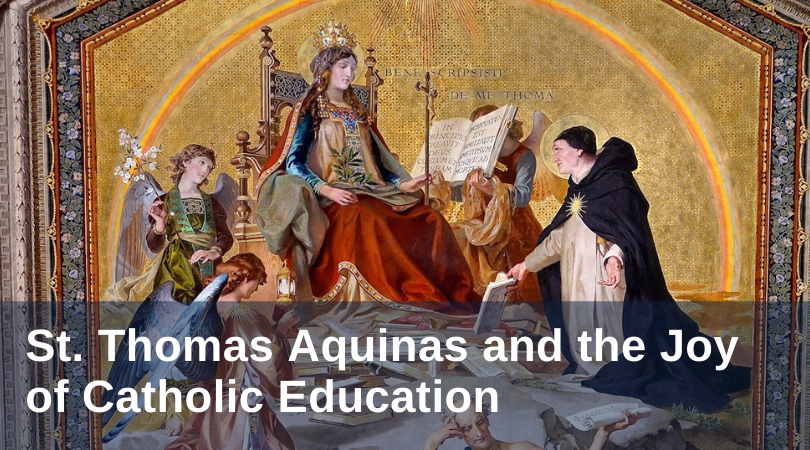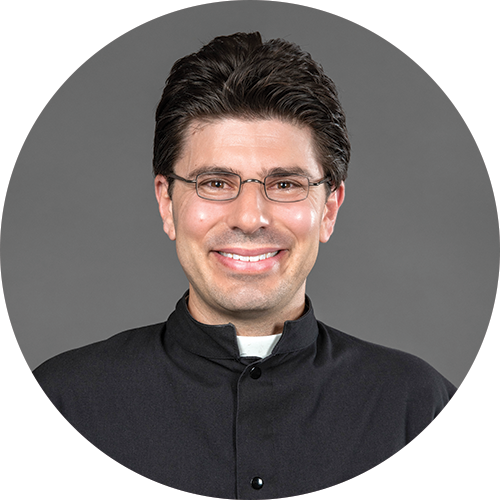
Well, here we are, still in the middle of a pandemic, and next week, it will be Catholic Schools Week once again. Has this week always just been a random excuse to enliven things in the schoolhouse at the peak of winter? For those engaged in remote learning, what might this year’s celebration mean minus the ice cream at lunch, dress down days, contests, and assemblies? Is a week like this destined to miss the mark in a pandemic year? Or, is there something more?
Like all things Catholic, there is definitely a clear and concrete reason behind this yearly event. Today, January 28, is the feast of St. Thomas Aquinas, the scholar par excellence in the Catholic tradition and the patron of Catholic education. Aquinas, as a young man, was supposed to become a monk, but, against his family’s wishes, he joined a group of friars who were studying at newly formed centers of learning across Europe called “universities,” a new word used to describe the project of education, literally meaning, “to be turned into one.” From the very beginning, Aquinas saw that schools had the potential to gather up information and knowledge across cultures and languages and subjects and traditions, then turn them all together into a single, unified, synthesized body of truth.
Our task in Catholic education, therefore, is to be bold and fearless like Aquinas who, because of his trust that all things do in fact work together unto good, was not afraid to draw upon the works of a pagan philosopher like Aristotle or to weave the voices of Chrysostom, Augustine, and Boethius into his own thought. It is thus no wonder that universities emerged from his time onward as places of progress and as transformational spaces where the old is somehow made new.
Perhaps, as we approach another Catholic Schools Week, we should consider our own ministry as Catholic educators in light of the life and legacy of Aquinas:
- Do we really believe that the complex world around us actually does mean something beautiful and good in the end?
- Do we get excited about the prospect of weaving together the personalities, opinions, and ideas of our classrooms in a way that is life-giving and images the Kingdom of God?
- Do we see the work of researching, analyzing, cross-referencing, discussing, integrating, drawing conclusions, and generating ideas with a community of people as sacred processes that bring about new life?
Whether we're teaching reading to first graders or physics to seniors, let’s use Catholic Schools Week during this pandemic year to simply check in with ourselves and begin to feel—or better yet, remember—what our vocation as educators in the Catholic tradition is all about: we are ambassadors, who have been called out of the narrow confines of ‘our discipline’ and ‘our grade level’ and ‘our methods’ to help turn the many souls who have been entrusted to us into a single communion of believers. In this way, St. Thomas Aquinas will be alive in our hallways, cafeterias, and classrooms, and as such, we will be offering our broken world a compelling vision of life where no one and no thing is excluded from the joy of that eternal day which stands at the end of this life.
Like what you read? Submit your email below to have our newest blogs delivered directly to your inbox each week.
Featured image: St. Thomas Kneeling and Offering His Works to the Roman Catholic Church by Ludwig Seitz; courtesy of Slices of Light via flickr; CC-BY-NC-ND-2.0.


